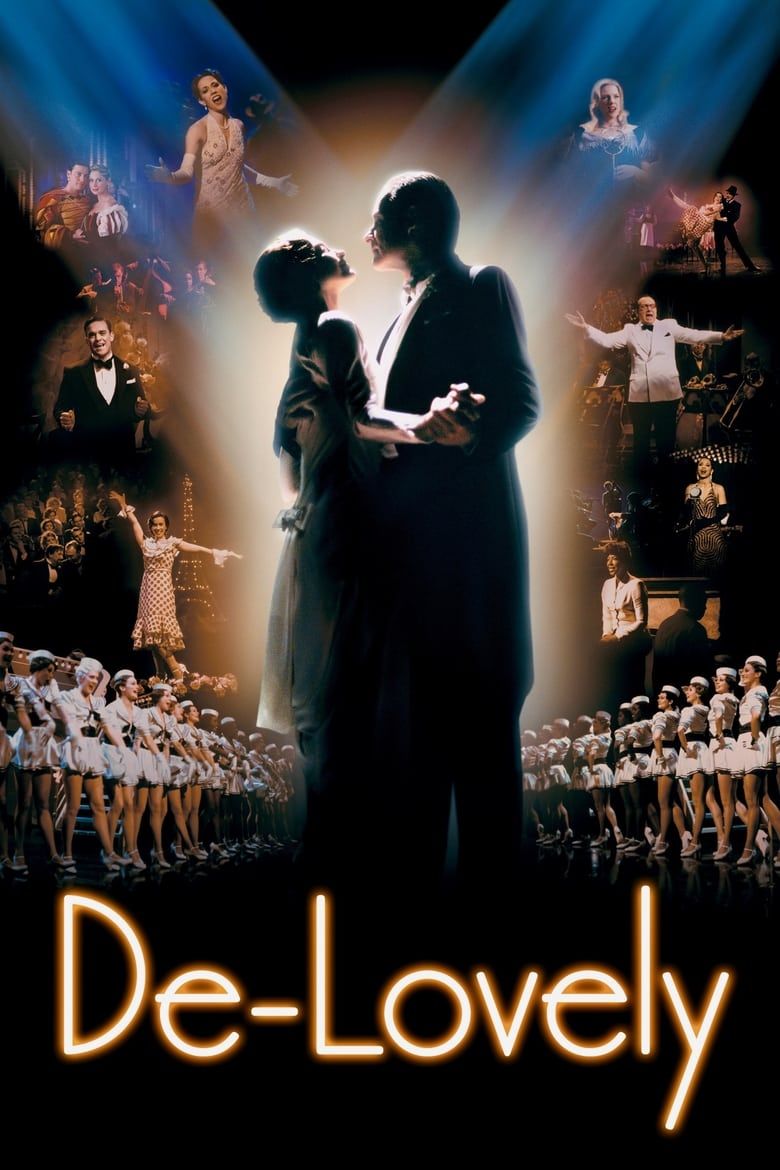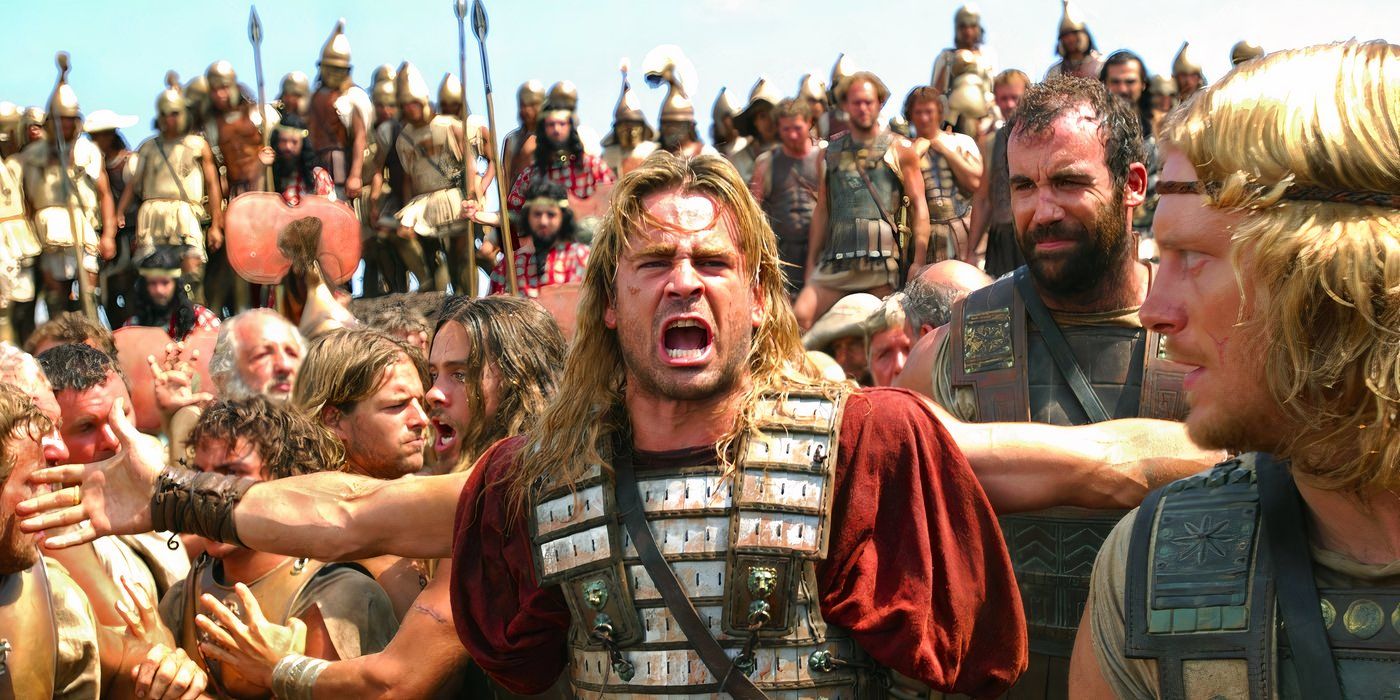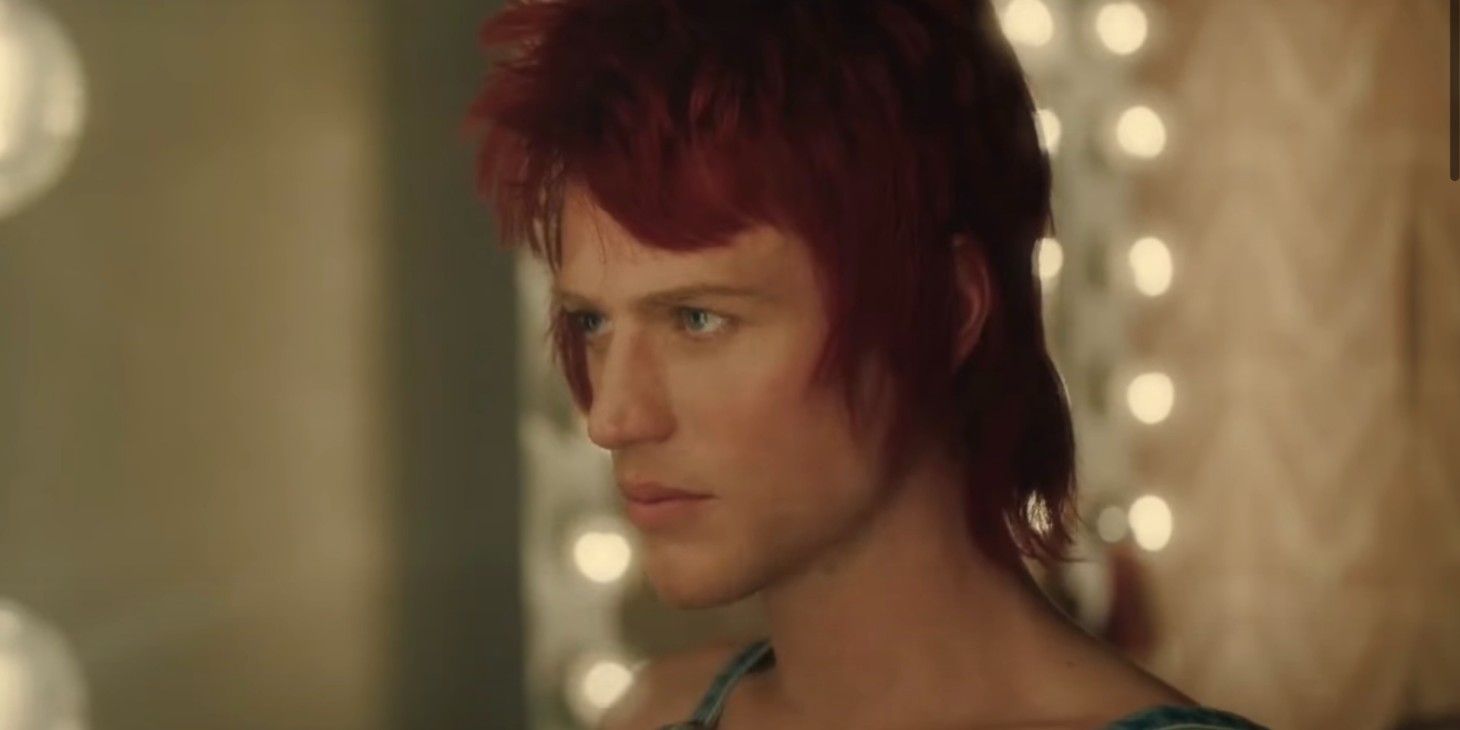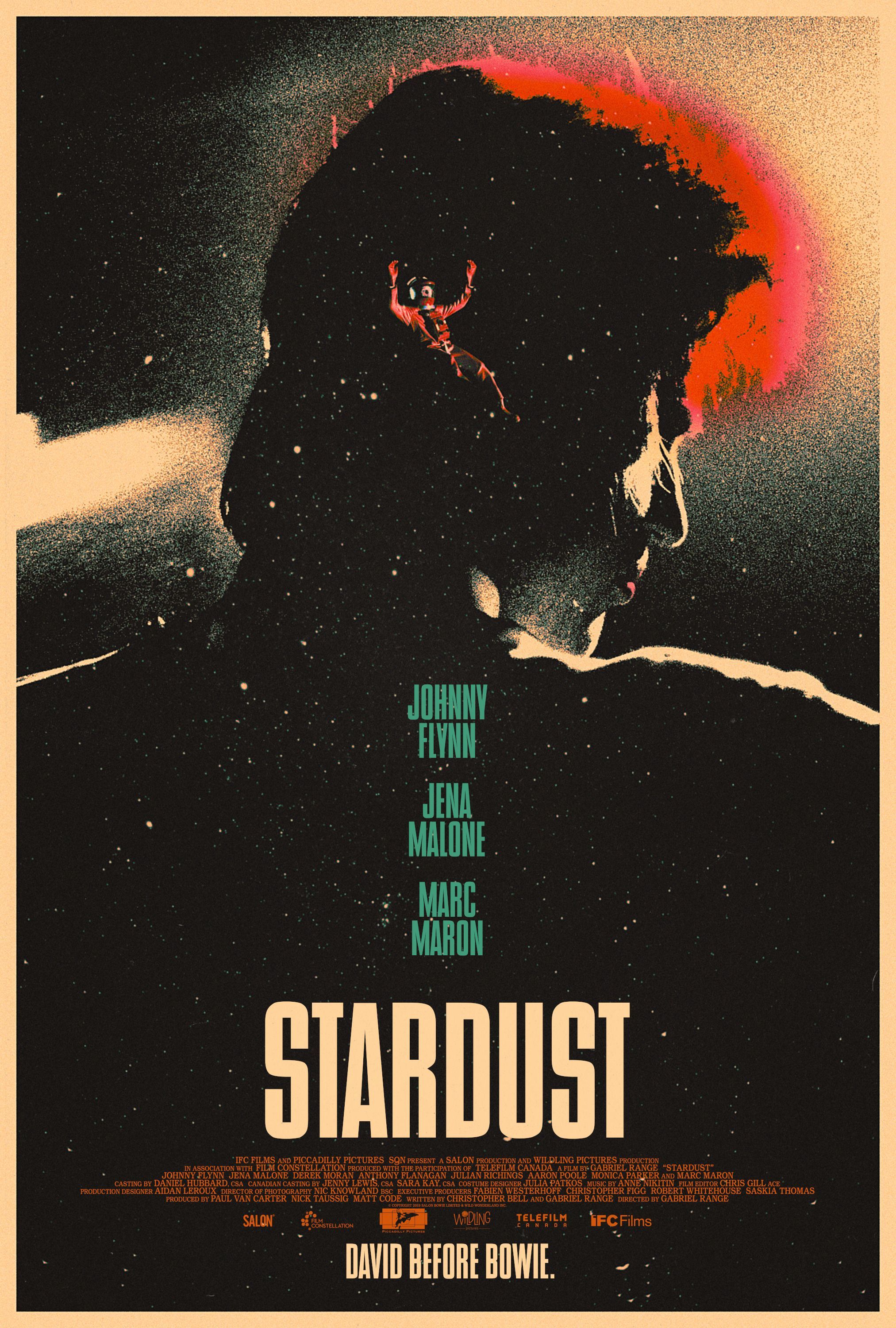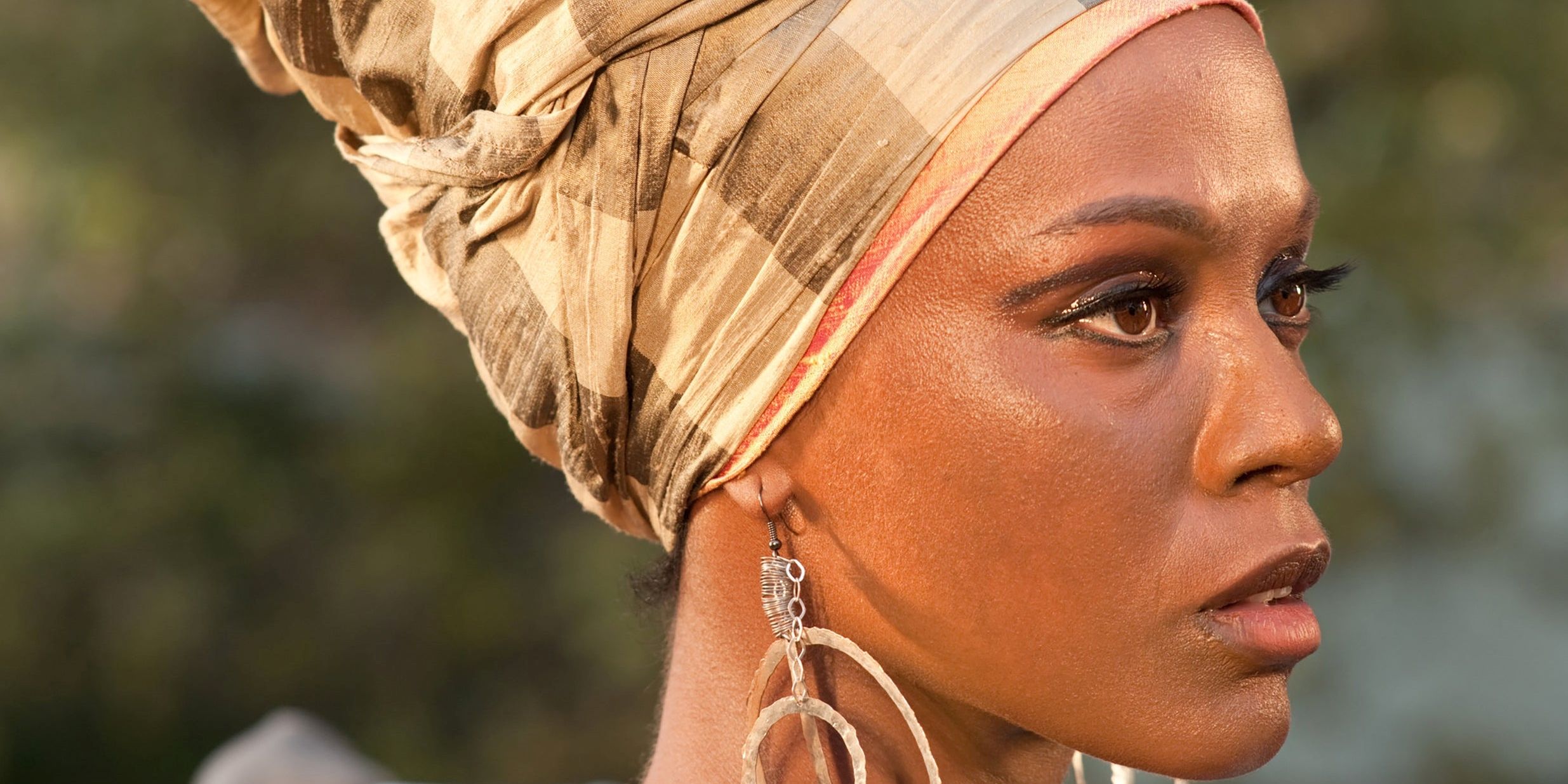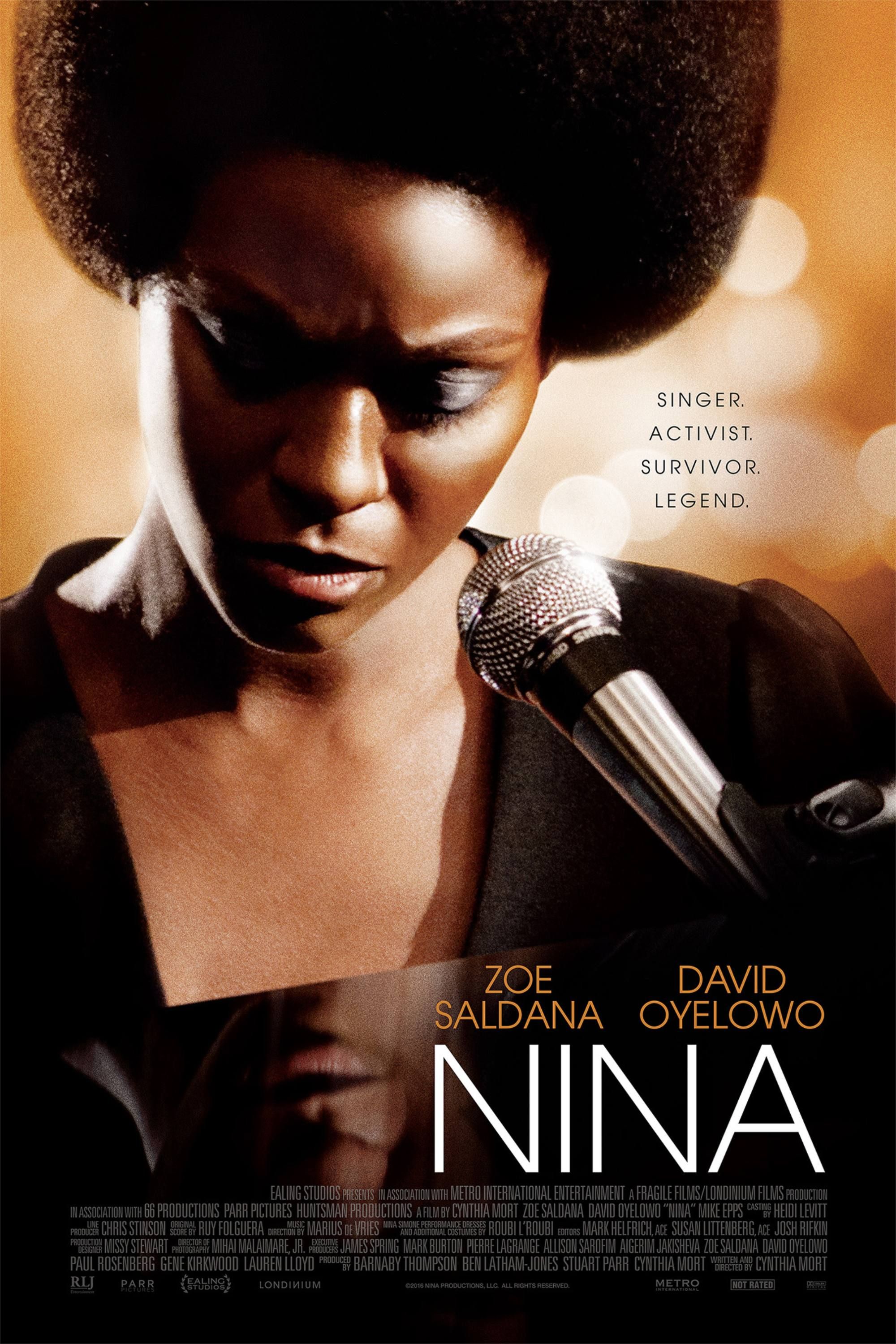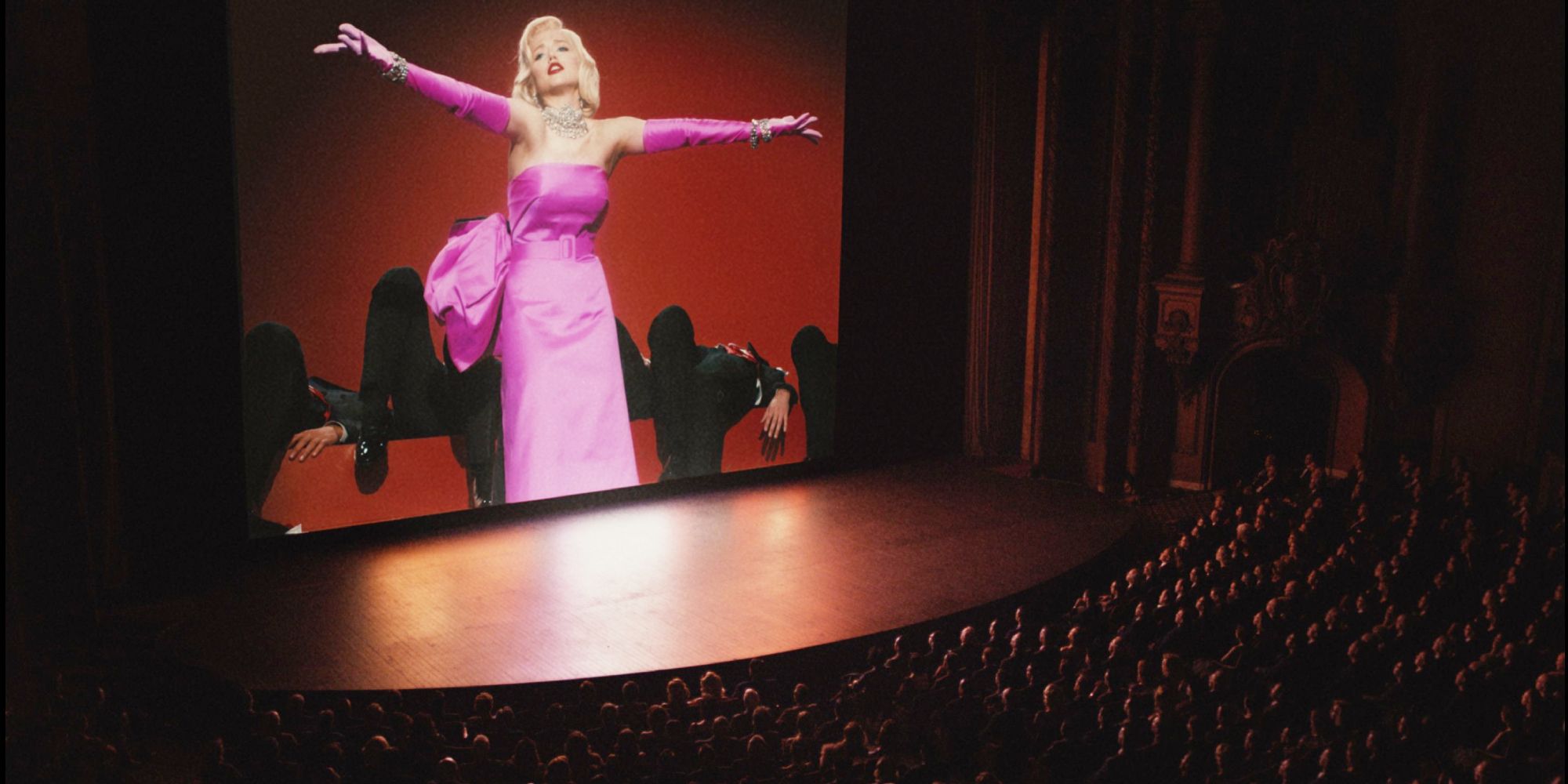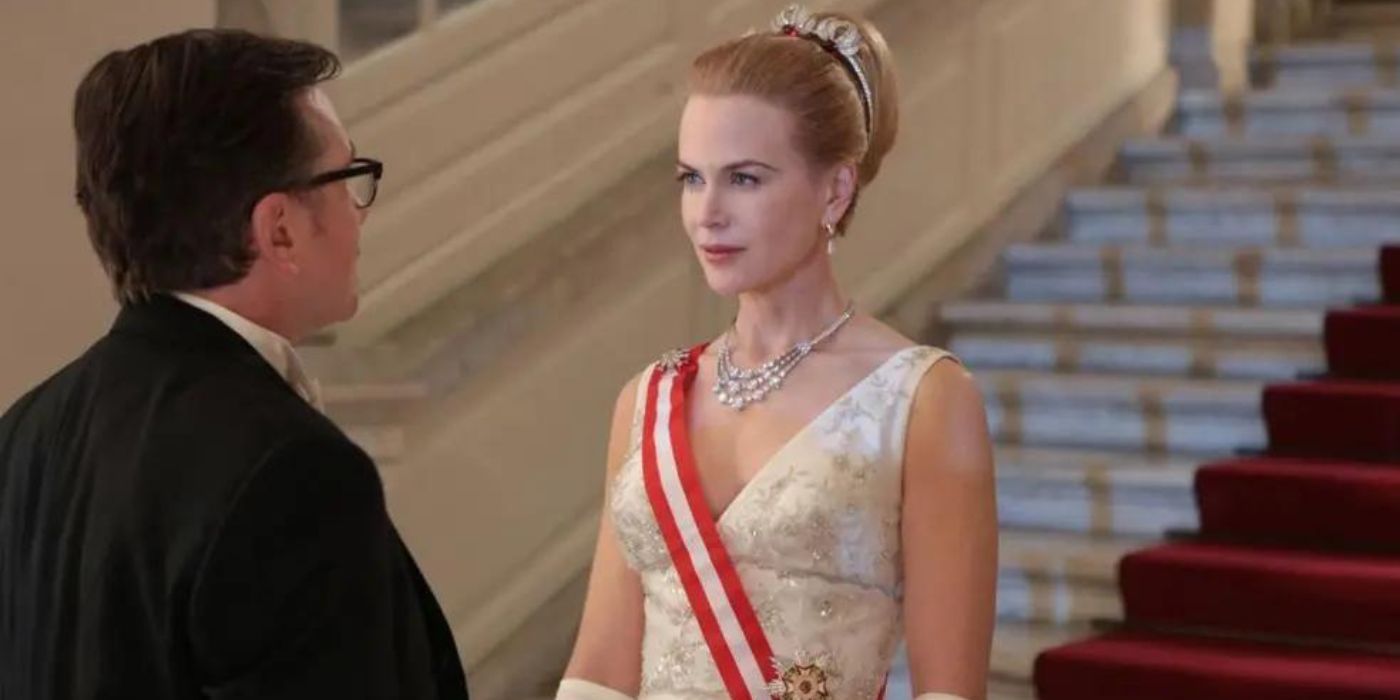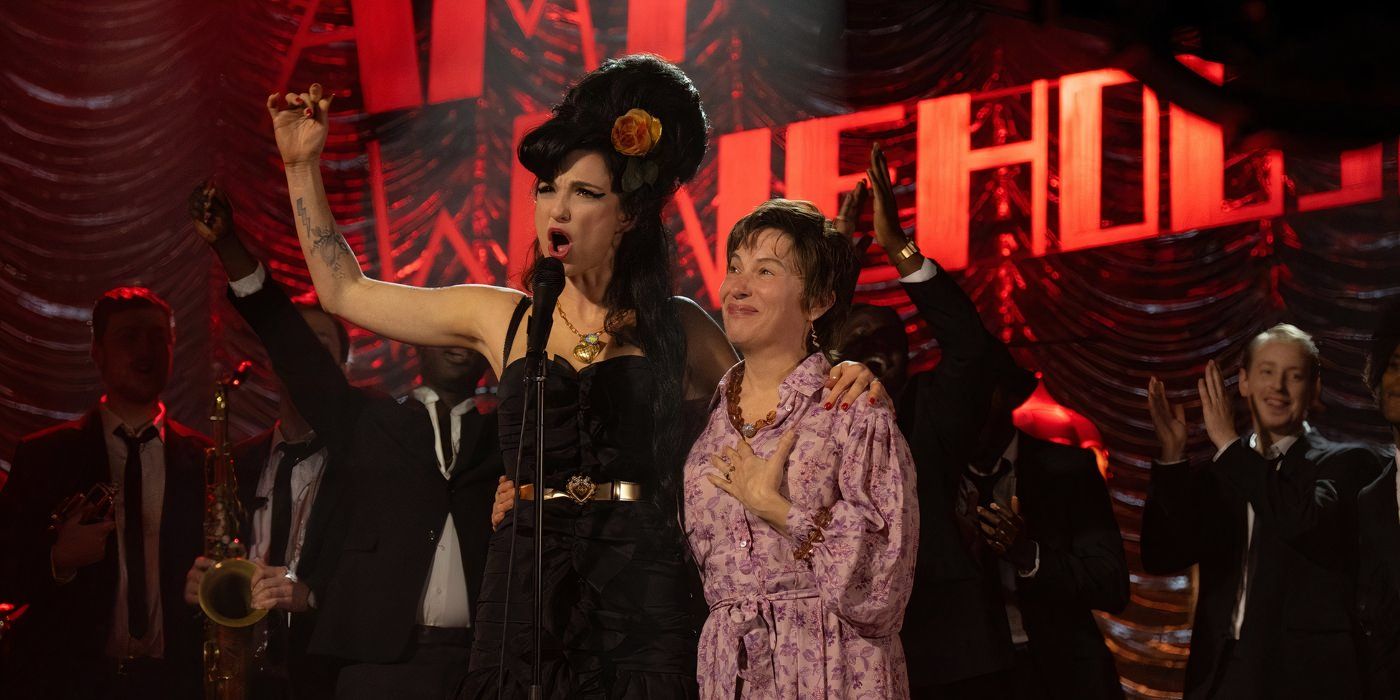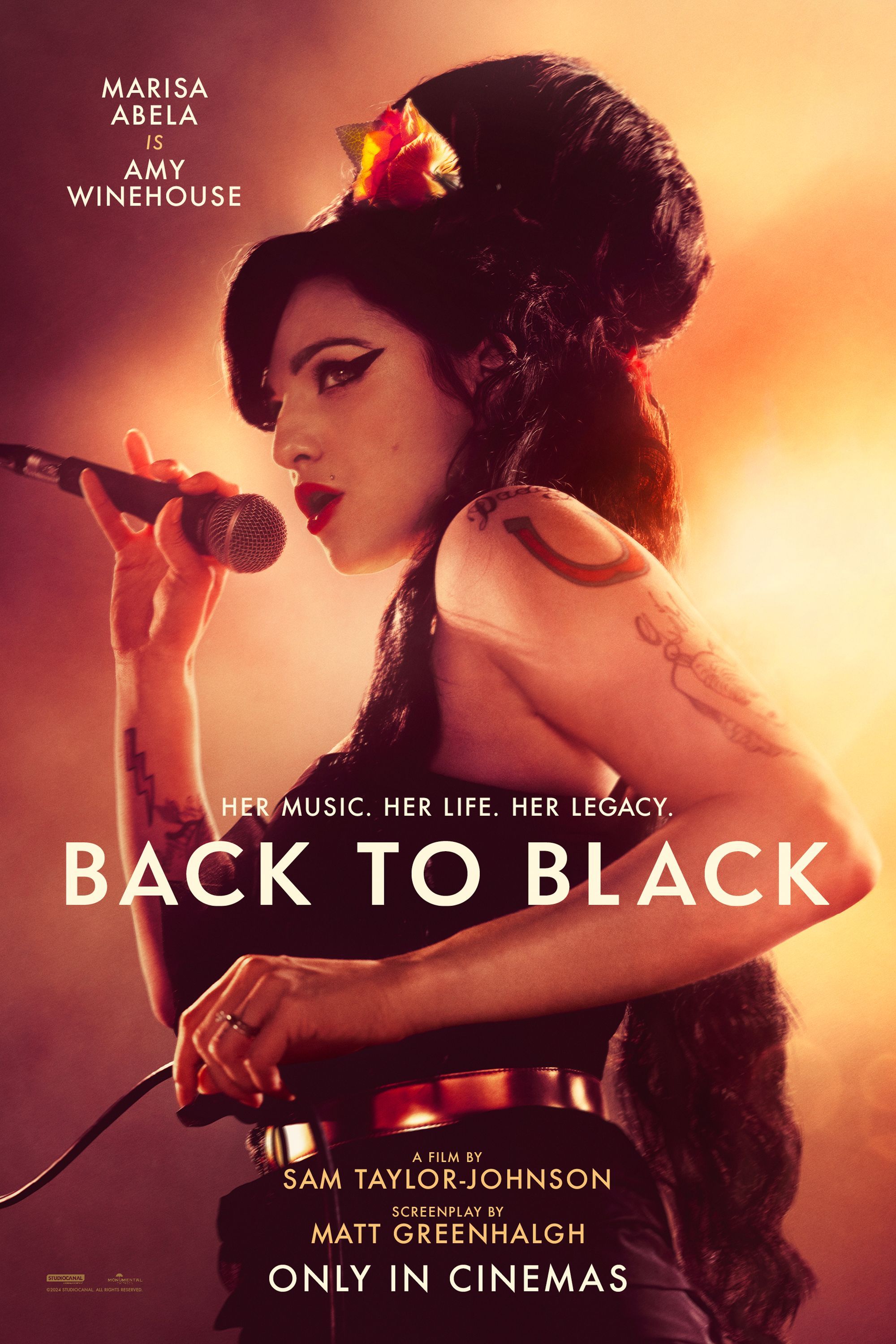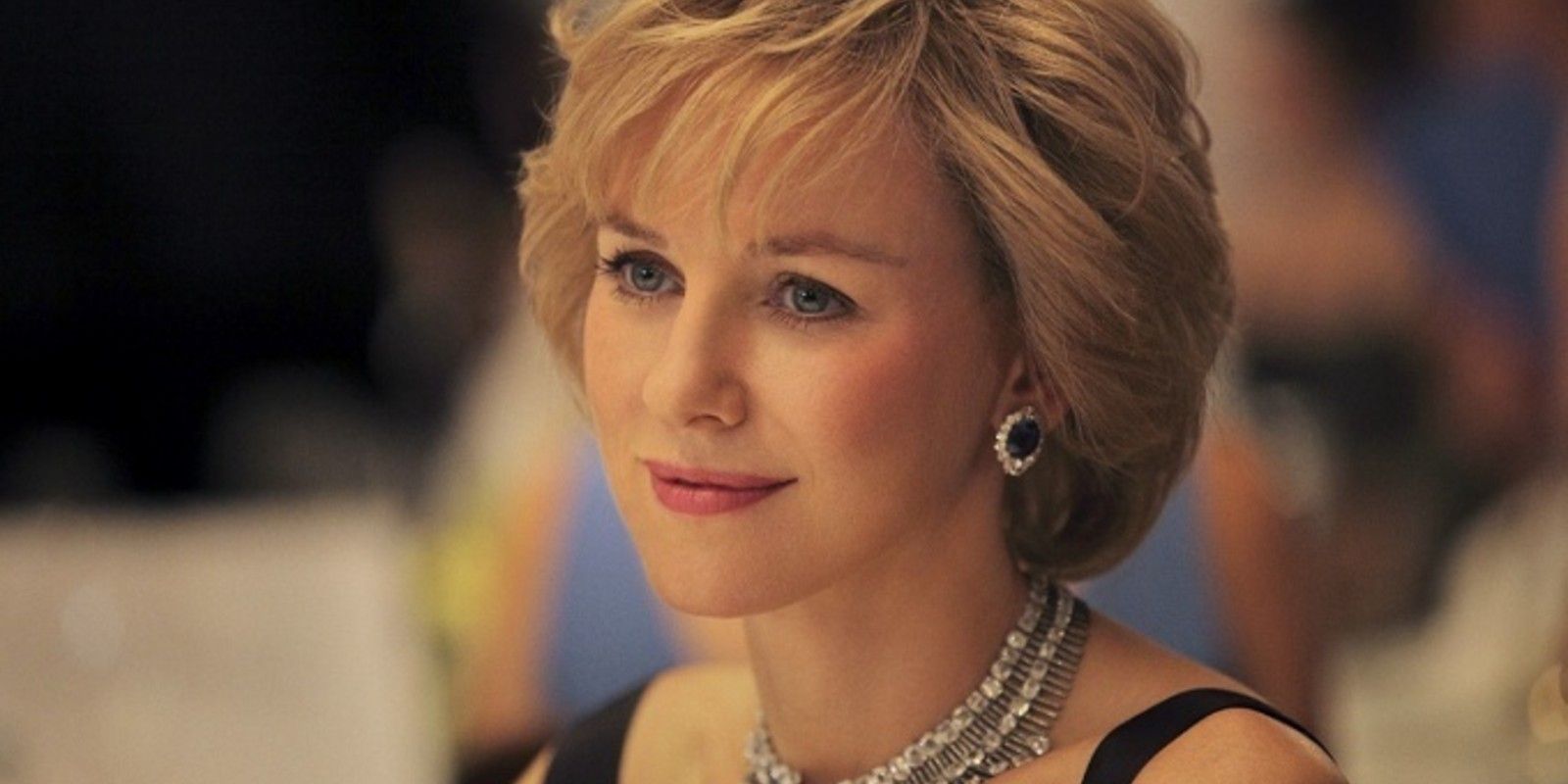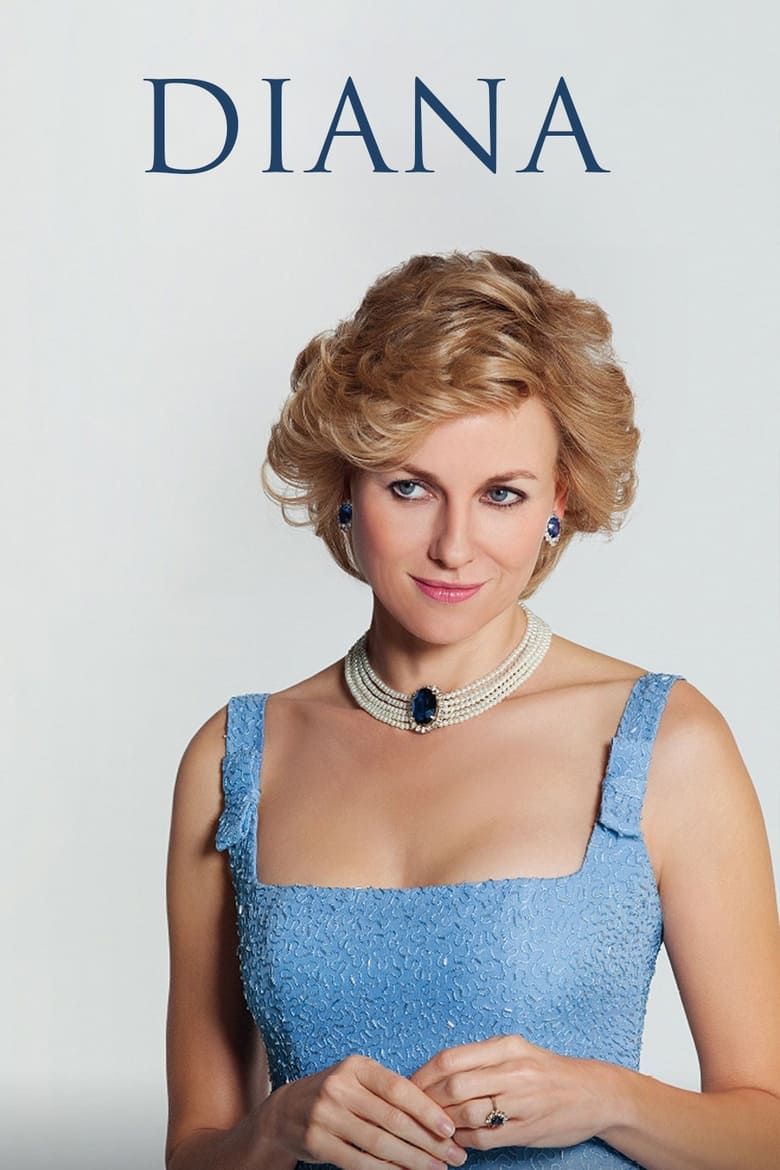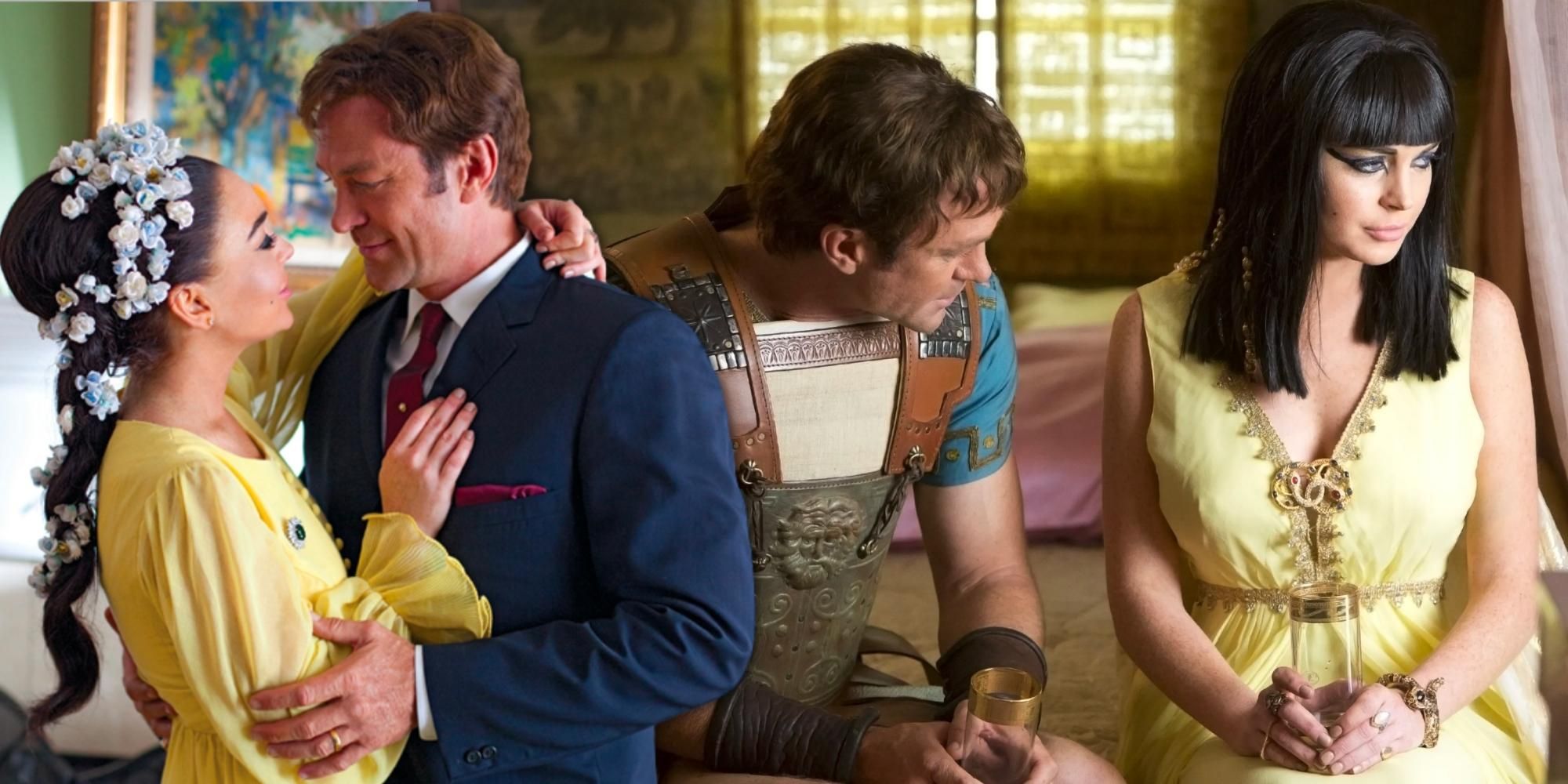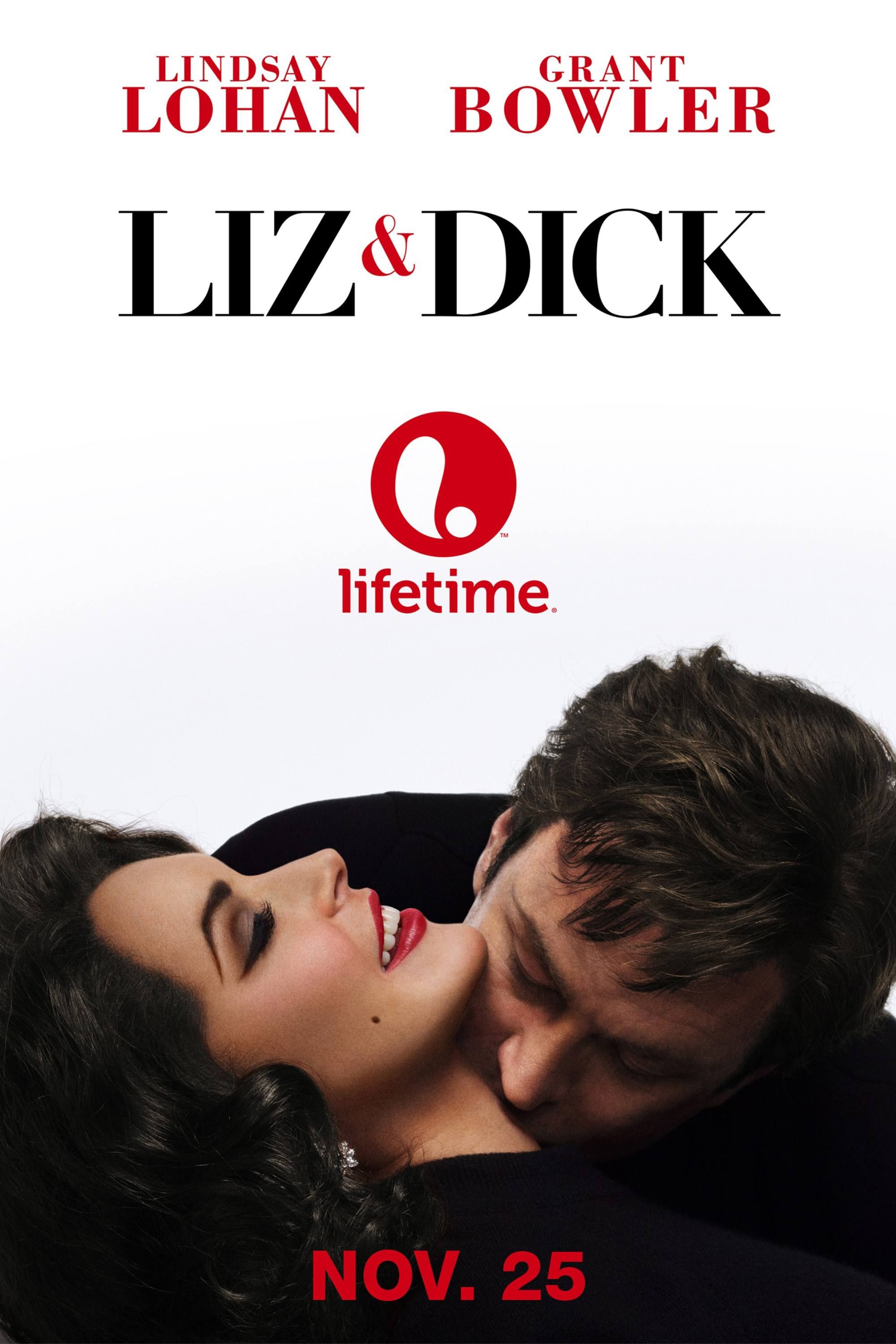
The biographical picture, or biopic for short, is one of the most common choices for the much-maligned category of cinema known as the Oscar bait. With their large, star-studded casts, large impressive sets and scale, and the added gravitas inherent with adapting the lives of major historical figures, such as Abraham Lincoln, or celebrities, such as Amy Winehouse, these types of films are highly appealing choices with which to fill the nominee slots for Hollywood’s various award shows.
Some biopics are highly successful in this regard while also providing a full and insightful look at their subject, such as Oppenheimer, while others end up being rejected not only by every awards show except maybe the Razzies, but also are rejected by every critic and audiences as well, such as Blonde. Here are the worst biopics of the past 25 years.
10
‘De-Lovely’ (2004)
Directed by Irwin Winkler
De-Lovely is a musical biopic first released in 2004. It is based on the life of musical theater composer Cole Porter of Anything Goes and Kiss Me, Kate fame. Directed by Irwin Winkler, who also directed The Net and Guilty by Suspicion, the story follows Porter’s, played by Kevin Kline, who also appeared in The Road to El Dorado and A Fish Called Wanda, life from meeting his wife Linda Lee Thomas, played by Ashley Judd, who also appeared in Heat and the Divergent trilogy, until his death.
De-Lovely has a completely useless framing device throughout. For example, the story is framed through Porter on his deathbed watching a stage play of his life, despite the events themselves being presented in a standard way with no stage play elements whatsoever. This shows that De-Lovely is more concerned with evoking the nostalgia of Porter’s plays than with actually presenting the events of his life in a true, entertaining or even interesting way, leading to tonal inconsistencies. This also affects the pace, dragging the story further than it already had been throughout.
9
‘Alexander’ (2004)
Directed by Oliver Stone
Alexander is an epic historical drama biopic first released in 2004. It is partially based on the book Alexander the Great by historian Robin Lane Fox. Directed by Oliver Stone of Platoon and Natural Born Killers fame, the plot follows the titular Greek conqueror, played by Colin Farrell of The Penguin and The Killing of a Sacred Deer fame, as he leads his army from Persia to India in a series of legendary military victories throughout the known world.
Alexander is weighed down by the constant narration from the historian Ptolemy, played by Anthony Hopkins of The Silence of the Lambs and Bram Stoker’s Dracula fame. This narration leads to the film feeling like a documentary, as the impact of the massive sets and sweeping landscapes is hindered by Hopkins talking over the scenes. In addition, the actors’ accents are all over the place, despite most of the main cast being supposed to be Greek. For example, Firth uses his Irish accent throughout, hindering the realism through this obvious clash between this accent and the Greek origins of the title character.
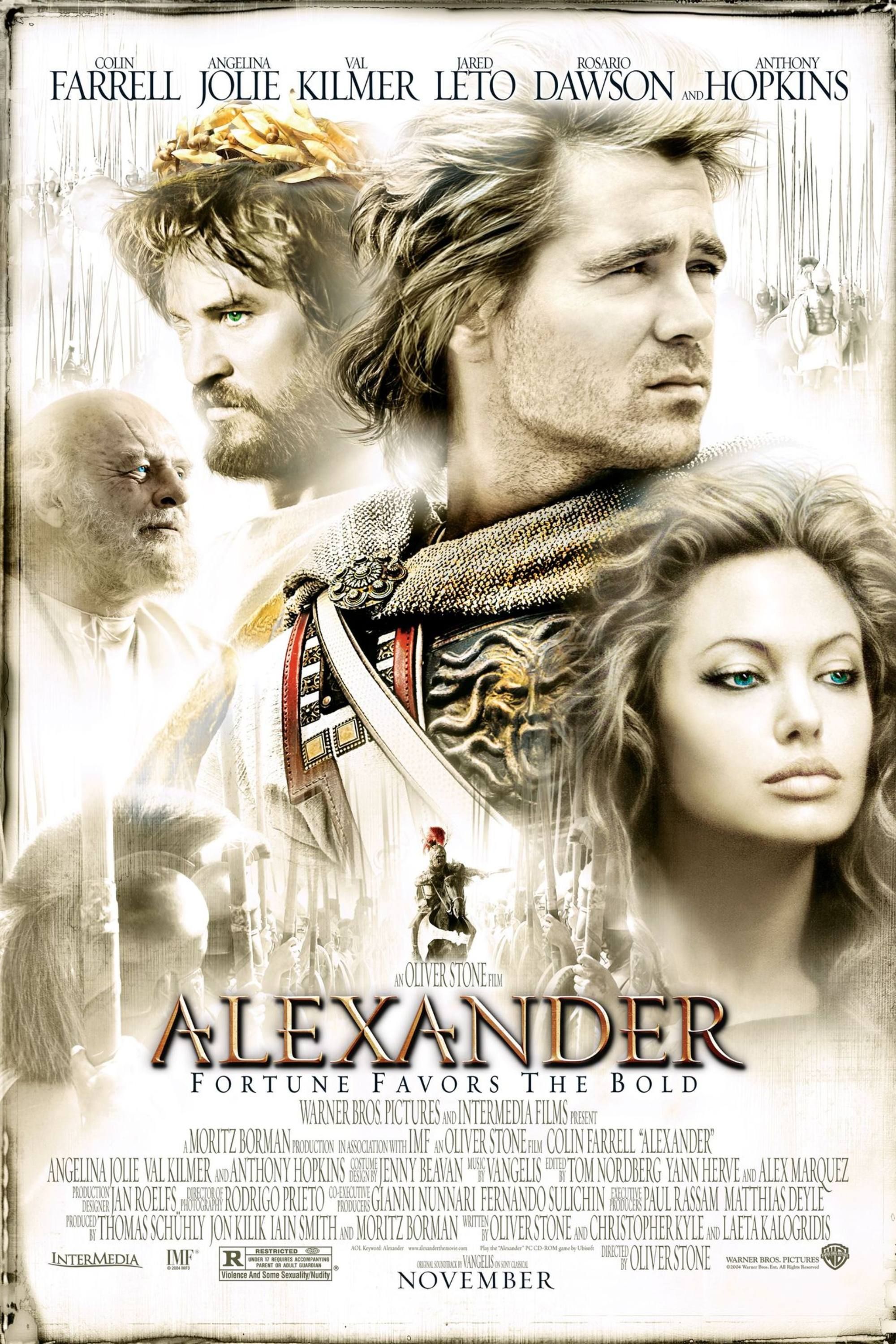
Alexander
- Release Date
-
November 24, 2004
- Director
-
Oliver Stone
- Main Genre
-
Drama
- Writers
-
Oliver Stone
, Christopher Kyle
, Laeta Kalogridis
8
‘Stardust’ (2020)
Directed by Gabriel Range
Stardust is a biopic drama film first released in 2020. Directed by Gabriel Range, best known for directing Death of a President and The Day Britain Stopped, the plot follows the early career of David Bowie, played by Johnny Flynn, best known for appearing in Lovesick and One Life, as he creates his iconic Ziggy Stardust persona on his first tour in the United States.
The biggest issue with Stardust is the lack of any of David Bowie’s songs, instead relying on covers of songs that Bowie performed during this time. For instance, despite claiming to tell the origins of “Ziggy Stardust,” one of the few songs performed by Bowie in the Ziggy Stardust persona is “I Wish You Would” by The Yardbirds. This shows that Stardust is less concerned with accurately telling the genesis of Bowie’s rise to stardom when they could not even get a single one of his original songs, instead preferring to try and ultimately fail to make a quick buck off of the name recognition of such an iconic musician with such a formulaic biopic.
7
‘Nina’ (2016)
Directed by Cynthia Mort
Nina is a biopic film first released in 2016. Directed by Cynthia Mort, better known as a writer on shows such as Roseanne and Tell Me You Love Me, the story follows musician Nina Simone, played by Zoe Saldaña of Guardians of the Galaxy and Star Trek fame, as she pursues her career as well as a relationship with her manager Clifton Henderson, played by David Oyelowo, who also appeared in Interstellar and Rise of the Planet of the Apes.
Nina has an extremely generic depiction of the titular subject. For example, Simone is shown to be a tortured artist through her constant drinking and abrasive behavior. This portrayal leads to the events throughout feeling boring due to such a paint-by-numbers characterization that those even slightly familiar with biopics will surely be tired of. This also provides very little room to do anything other than watch Nina blow up in drunken outbursts to the detriment of trying to tell the events of her life, thereby abandoning the purpose of even trying to tell her story in the first place.
6
‘Blonde’ (2022)
Directed by Andrew Dominik
Blonde is a psychological drama biopic film first released in 2022. It is an adaptation of the 2000 book of the same name by Joyce Carol Oates, who also wrote Black Water and What I Lived For, and is the second adaptation of said book following the 2001 version. Directed by Andrew Dominik, who also directed Killing Them Softly and The Assassination of Jesse James by the Coward Robert Ford, the story follows actress Marilyn Monroe, played by Ana de Armas, who also appeared in Blade Runner 2049 and Deep Water, from her rise to stardom to her untimely death.
Blonde has a very inconsistent characterization of Marilyn. For instance, she is shown being assertive on set to the point of making loud demands, yet she is also shown as being so submissive as to repeatedly let herself be taken advantage of by everyone around her. This inconsistency leads to a frustrating experience for the audience, as they are shown one version of her only to then be constantly shown a completely different version of her immediately after, with no indication as to which is the real one.
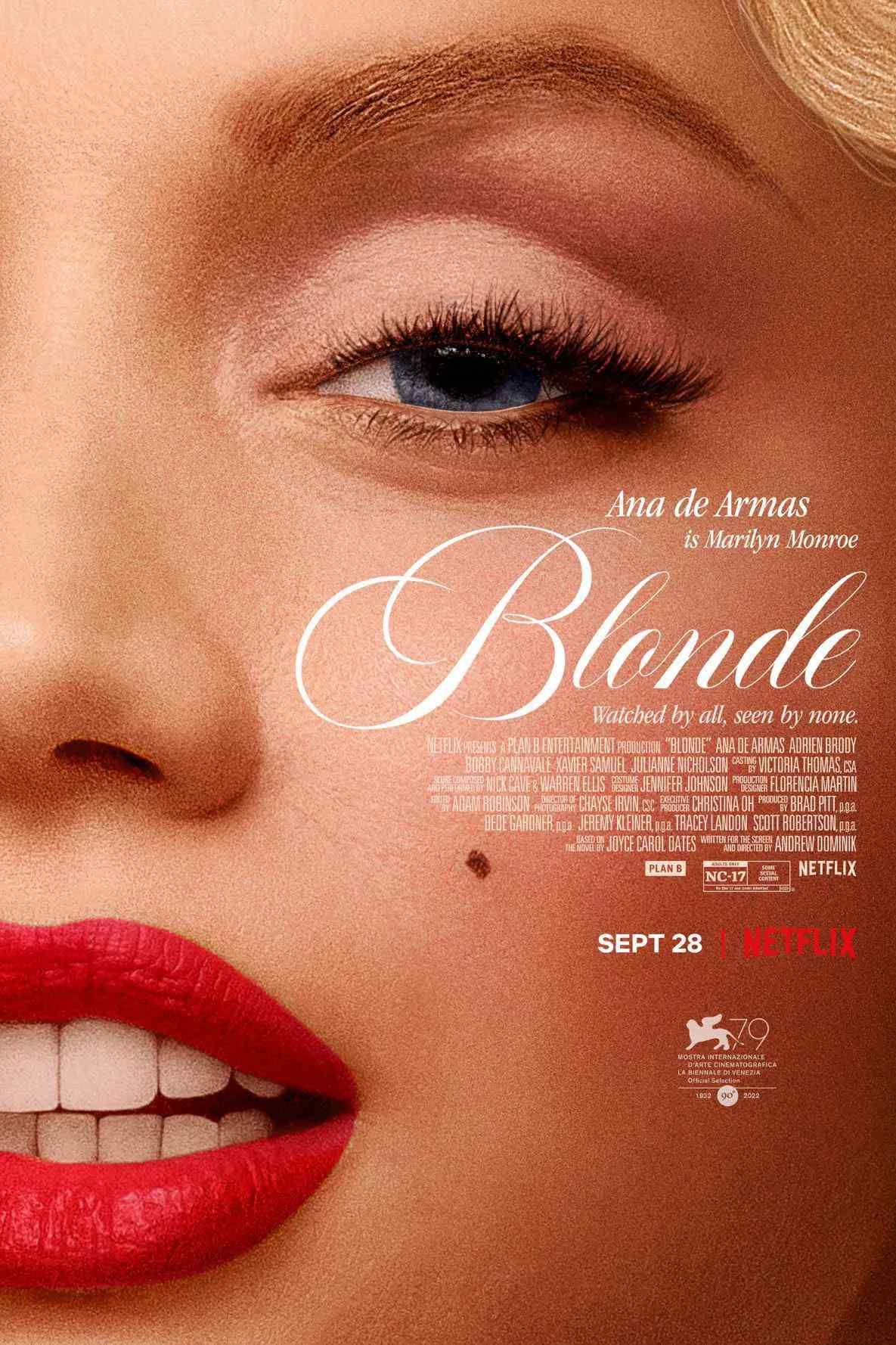
Blonde
Blonde chronicles the rise and fall of Hollywood star Marilyn Monroe. The biopic is a fictionalized version of Monroe’s life starring Anna de Armas from director Andrew Dominik. The film was criticized for its NC-17 rating, with many claiming the film exploited Monroe’s tragic story. Alongside Armas, Adrien Brody, Bobby Cannavale, Zavier Samuel, and Julianne Nicholson round out the cast.
5
‘Grace of Monaco’ (2014)
Directed by Olivier Dahan
Grace of Monaco is a biopic drama first released in 2014. Directed by Olivier Dahan of La Vie en Rose and Already Dead fame, the plot follows actress and royal Grace Kelly, played by Nicole Kidman of Eyes Wide Shut and The Others fame, as she transitions from a career in Hollywood to the throne of Monaco amidst a time of political turmoil with France in the early 60s.
Grace of Monaco‘s title character is the least interesting part of the film’s story. For example, her husband, Prince Rainier III, played by Tim Roth, (Reservoir Dogs and The Incredible Hulk), has to deal with familial espionage, court politics and the entire French government breathing down his neck, while the closest thing to a conflict that Grace experiences is whether or not to be in a big-budget movie. This leads to Grace appearing like an afterthought of her own story, leading to the film feeling like a bait and switch advertisement, using her name recognition to sell a tale of her much less famous husband instead.
4
‘Back to Black’ (2024)
Directed by Sam Taylor-Johnson
Back to Black is a biopic drama film first released in 2024. Directed by Sam Taylor-Johnson of Fifty Shades of Grey and Nowhere Boy fame, the plot follows singer Amy Winehouse, played by Marisa Abela, who also appeared in Industry and Barbie, and her rise to stardom as she battles addiction and her tumultuous romance with Blake Fielder-Civil, played by Jack O’Connell, who also appeared in Skins and This Is England.
Back to Black presents Winehouse’s tragedy in the most generic way possible. For instance, her struggles with drinking are given functionally no time to be established or developed, as the filmmakers just expect the audience to accept a musician with substance abuse without even trying to justify or explore this in any meaningful way. In addition, the film does not even bother to give her story a genuine conclusion, instead describing her death with onscreen text, further proving that this was an exceptionally lazy endeavor. These aspects show that the filmmakers failed to understand the complexity of the tragedy they were trying to adapt, instead preferring to create a generic product through their uninspired craft.
3
‘Diana’ (2013)
Directed by Oliver Hirschbiegel
Diana is a biopic drama film first released in 2013. It is based off the 2001 book Diana: Her Last Love by reporter and documentarian Kate Snell. Directed by Oliver Hirschbiegel of Downfall and The Experiment, the story follows the titular royal, played by Naomi Watts of The Ring and I Heart Huckabees fame, as she pursues a secret relationship with surgeon Hasnat Khan, played by Naveen Andrews of The English Patient and Planet Terror fame.
Diana has very subpar production value throughout. For instance, there is a scene in which Diana visits Khan at his place of work, and the doctor’s office in this scene is so obviously a set to the point of being painfully fake. In addition, there are several scenes of Diana sitting in front of a fireplace while talking, leading to this biopic feeling more like an overly sensationalized documentary than a narrative feature. These lead to an experience feeling like the budget in the millions was wasted on something that could have been better off as a more easily forgotten made for TV movie.
2
‘Liz and Dick’ (2012)
Directed by Lloyd Kramer
Liz and Dick is a biopic drama film first released in 2012. Directed by Lloyd Kramer, who also directed The Five People You Meet In Heaven and David and Lisa, the story follows Elizabeth Taylor, played by Lindsay Lohan of Freaky Friday and Mean Girls fame, and Richard Burton, played by Grant Bowler of Guns Akimbo and The Amazing Race Australia fame, as they begin a whirlwind relationship while filming the classic 1963 epic film Cleopatra that continues throughout both their careers.
Liz and Dick is less of a movie and more so a series of characters doing the same thing over and over again. For example, divorce is brought up repeatedly throughout, as Burton’s wife Sybil, played by Tanya Franks of EastEnders and Broadchurch fame, first refuses to divorce him, then both she and Taylor’s husband Eddie, played by Andy Hirsch, who also appeared in Air and L.A. Noire, refuse to divorce both of them, and so on. This mindless repetition of plot points throughout shows that the story is nothing more than pointless filler, drastically hurting the experience.
1
‘Gotti’ (2018)
Directed by Kevin Connolly
Gotti is a biopic crime film first released in 2018. Directed by Kevin Connolly, better known as an actor in shows such as Unhappily Ever After and films such as Rocky V, the plot follows mob boss John Gotti, played by John Travolta of Pulp Fiction and Bolt fame, as he rises to the top of the New York crime world and the subsequent trials that end his career.
Gotti fails to contextualize any of the events of its subject’s life. For instance, when Gotti kills his boss and take over the family, the film portrays this as a necessary act to keep the family afloat while failing to recognize this as the desperate power grab it actually is. In addition, when Gotti kills people in front of witnesses, who, unsurprisingly report this to the police and get him arrested, accidentally portraying him as hopelessly incompetent instead of the legendary figure whose legacy is desperately trying to be evoked. Gotti is therefore the worst biopic of the last 25 years because it not only blatantly misrepresents history but also cannot maintain consistency within its own depiction.

